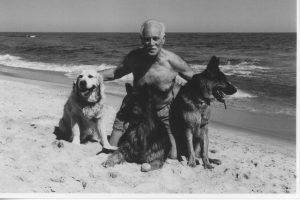Melissa Thomas, a former Medical Service Corps office in the U.S. Army and a current medical student, wrote a heart-wrenching piece in the New York Times Magazine about the moment she learned of her husband’s death. He was in the army, too, and, like Melissa, served several missions on the front lines in Iraq and Afghanistan. He didn’t die in warfare. He died while snowshoeing in Colorado on New Year’s Eve Day four years ago. An avalanche killed him.
I know Melissa. She’s a compassionate, deep-thinking doctor-in-training. But there’s more to her story than coping with tragic news. There’s a message for future doctors.
As doctors, we like to think that it’s all about saving lives. But we also know that being a caregiver sometimes requires being the one that breaks the news that a loved one is dead.
Melissa has told me that as part of medical training, she’s known that she has to consider carefully which words she’ll use. She had a friend, for instance, who was told by a doctor that her husband’s heart stopped beating after complicated surgery. We all live in denial when harsh news hits us. So Melissa’s friend didn’t understand what was going on until the doctor finally said, “Your husband is dead.” Then he shot out of the room leaving the woman alone.
Yes, words matter. But Melissa barely remembers the words when she was told that her husband died. What she remembers is the comfort; the way the officers stood by her side. The way they spoke in calm tones, rather than sounding like a computer.
This is a lesson—albeit one learned in such a harsh way—that she is trying to take with her as she becomes a full-fledged physician.
I have a colleague who is a professor at Yale drama school and teaches voice classes. The vast majority of her students are aspiring actors. A few years ago, she was invited to speak to a group of physicians. Someone realized that we, doctors, never learn about how we speak, just what we say.
One of my former professors told me that he had this issue with one of his trainees who spoke in a chipper voice no matter the content. But he thought it was inappropriate to comment on her tone.
Why inappropriate? If we teach medical communication in medical schools these days, shouldn’t voice count too?
Yes words matter but, it’s like that mom-ism “It’s not what you said, it’s your tone.” Doctors could take note of that too.
